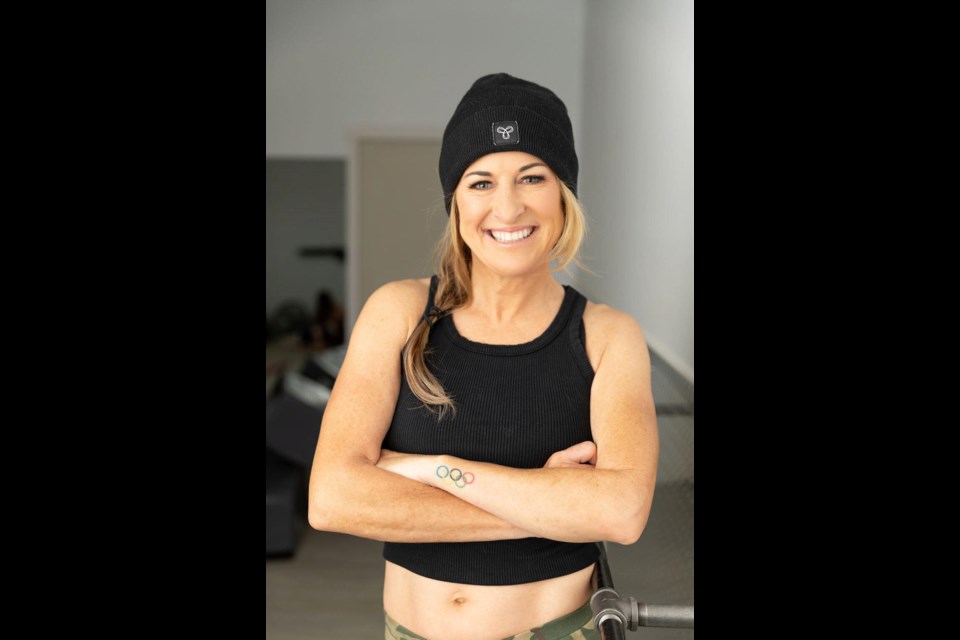COVID-19 has been very hard on competitive skiers in Canada, who've had to forgo competition for the last year due to pandemic restrictions.
At around the same time, Squamish two-time Olympic freestyle skier turned coach Tami Bradley has had to face her own share of obstacles, including a particularly tough injury that sidelined her from the slopes for a year and a half.In September 2019, Bradley woke up with a pinched nerve in her neck. The pain was excruciating and wouldn't go away.
She had to seek medical treatment."They figured out that the pinched nerve was coming from vertebrae in my neck that had deteriorated and compression fractures," said Bradley. "It was from an old injury probably 20 years ago, doing a backflip to my head, and just caught up with me."
It was decided she needed surgery to alleviate the situation.However, when she woke up from her procedure, she had a different problem.
While the pain was gone, she found her left arm was paralyzed."I found myself waking up to a freaking nightmare," said Bradley.
Thus began a long process of rehabilitation and recovery.She'd eventually find a form of therapy called PEMF — or pulsed electromagnetic field therapy — that worked for her, and over two years later, her arm is once again functioning.
"I have full mobility in my arm today," said Bradley."You can see muscle in my arm, and although I have almost no feeling from my shoulder down to my hand, I have full mobility, and, I would say, my lifting is getting stronger all the time. Like, no one would know my arm is a floating arm."
She said she had a great team of people around her to get her through that tough period."It had me working really hard for two years," said Bradley.
"I was unrecognizable. I had lost 22 pounds from all the drugs. Doctors were having to come over after, because they were having to get me off opioids and all that stuff...I thought I was going to die."Such a tremendous obstacle didn't sideline Bradley. She's still hard at work in her athletic pursuits.
She's working for The North Face women's ski camps in Whistler, as part of Whistler Blackcomb's Olympians' program, and as a coach with Freestyle Apex.Bradley also operates her own outfit, called Sweat Squamish, where she provides conditioning training for female athletes of all types.
She said that the pandemic hit many of these girls very hard and keeping training up during the pandemic was no easy feat.It also became mentally taxing for many people to keep training through last year when there was no competition.
As one example, she said, her daughter, Chase Capicik, decided that she'd take a year off from skiing despite scoring high international rankings."It was so hard for everybody," said Bradley, who trains about 30 female athletes at Sweat Squamish.
She trains a mixture of female skiers, soccer players and mountain bikers, putting them through programs that emphasize agility.She has plans on opening up a boy's group in January.
Through Sweat Squamish, Bradley's been working with some up-and-coming athletes.There are a few to keep an eye on this season who have potential to go far — possibly even to the Olympic level, she said.
Three skiers that came to mind:Kayley Sherlock is a 16-year-old athlete competing on the free-skiing tour, and she is "killing it," Bradley said.
"She is on fire," she said, also noting Sherlock is also an accomplished mountain biker.Isabelle 'Izzy' Bexton with the racing program is also an up-and-comer.
Avery Krumme is another athlete that made Bradley's to-watch list.The competitive ski season starts Nov. 25.
**Please note, this story has been changed since it was first posted to correct the spelling of Isabelle's name.



